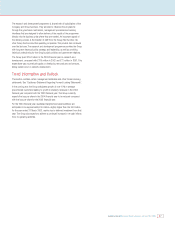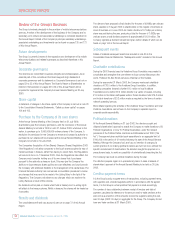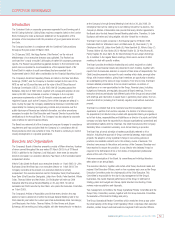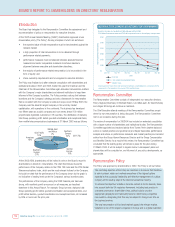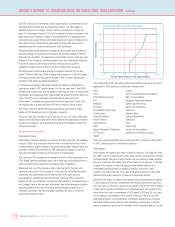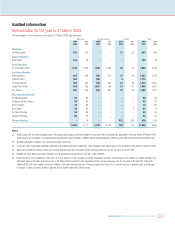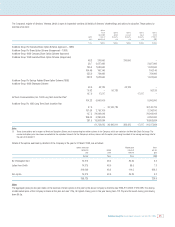Vodafone 2003 Annual Report Download - page 58
Download and view the complete annual report
Please find page 58 of the 2003 Vodafone annual report below. You can navigate through the pages in the report by either clicking on the pages listed below, or by using the keyword search tool below to find specific information within the annual report.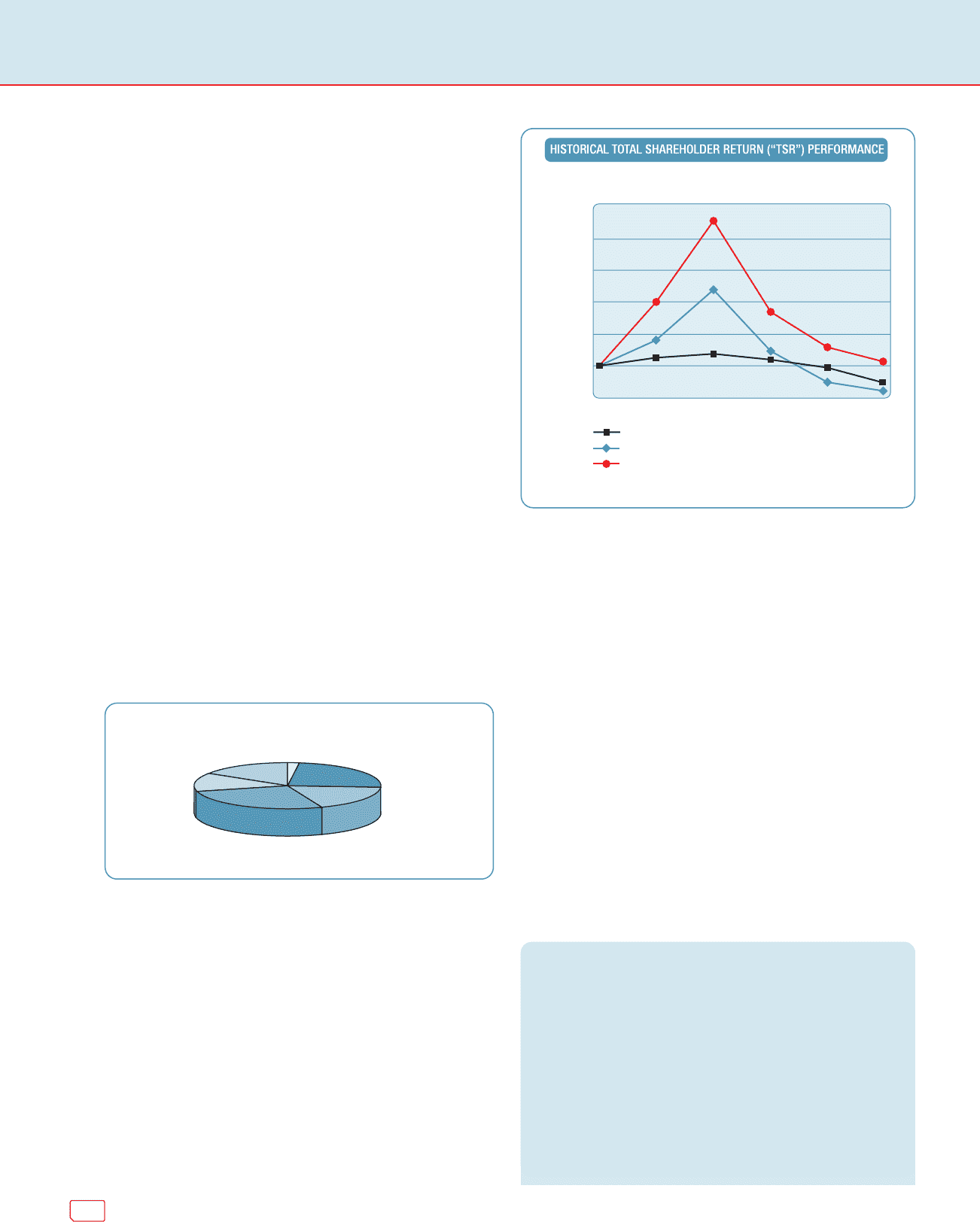
Vodafone Group Plc Annual Report & Accounts and Form 20-F 2003
56
BOARD’S REPORT TO SHAREHOLDERS ON DIRECTORS’ REMUNERATION
Introduction
The Board has delegated to the Remuneration Committee the assessment and
recommendation of policy on remuneration for executive directors.
At the 2002 Annual General Meeting (“AGM”) shareholders approved a new
remuneration policy (“the Policy”) the key principles of which are as follows:
•the expected value of total remuneration must be benchmarked against the
relevant market;
• a high proportion of total remuneration is to be delivered through
performance-related payments;
•performance measures must be balanced between absolute financial
measures and sector comparative measures to achieve maximum
alignment between executive and shareholder objectives;
•the majority of performance-related remuneration is to be provided in the
form of equity; and
•share ownership requirements are to be applied to executive directors.
The Policy was finalised only after extensive consultation with shareholders and
institutional bodies in 2001 and 2002. Earlier this year the Chairman and the
Chairman of the Remuneration Committee again discussed remuneration matters
with the Company’s major shareholders and relevant institutions to keep them
informed of the Company’s position. The Policy provides a strong link between
incentives and the Company’s strategy and sets a framework for remuneration
that is consistent with the Company’s scale and scope. As at 23 May 2003, the
Company was the eleventh largest company in the world by market
capitalisation, with operations in five continents. The business has developed
over fifteen years as a public company and now serves almost 120 million
proportionate registered customers in 28 countries. The distribution of statutory
total Group operating profit, before goodwill amortisation and exceptional items,
from mobile telecommunications businesses at 31 March 2003 was as follows:
At the 2003 AGM, shareholders will be invited to vote on the Board’s report to
shareholders on directors’remuneration. The chart that follows shows the
performance of the Company relative to the FTSE 100 index and the FTSE Global
Telecommunications index, which are the most relevant indices for the Company.
It should be noted that the performance of the Company shown by the graph is
not indicative of vesting levels under the Company’s various incentive plans.
The performance of the Company during the 2003 financial year has been
strong, with excellent growth announced on all measures, as described
elsewhere in this Annual Report. For example, Group turnover, statutory total
Group operating profit, before goodwill amortisation and exceptional items, and
profit before taxation, goodwill amortisation and exceptional items, all increased
by 30% or more over the prior year.
Remuneration Committee
The Remuneration Committee consists of independent non-executive directors.
Penny Hughes (Chairman), Dr Michael Boskin, Lord MacLaurin, Sir David Scholey
and Jürgen Schrempp all continue as members.
The Chief Executive attends meetings of the Remuneration Committee, except
when his own remuneration is being discussed. The Remuneration Committee
met on six occasions during the year.
The review of remuneration for 2003/04 has included an extended consultation
with a larger number of shareholders and institutional bodies. The Remuneration
Committee appointed and received advice from Towers Perrin (market data and
advice on market practice and governance) and Kepler Associates (performance
analysis and advice on performance measures and market practice) and received
advice from the Group Human Resources Director and the Group Compensation
and Benefits Director. As a result of this review, the Remuneration Committee has
concluded that the existing policy will remain in place for the year ending
31 March 2004. It will be subject to regular review in subsequent years and
shareholders will be consulted on, and informed of, any policy developments, as
appropriate.
Remuneration Policy
The Policy was approved by shareholders in 2002. The Policy is set out below:
The overriding objective of the Policy on incentives is to ensure that Vodafone
is able to attract, retain and motivate executives of the highest calibre
essential to the successful leadership and effective management of a global
company at the leading edge of the telecommunications industry.
To achieve this objective, Vodafone, from the context of its UK domicile, takes
into account both the UK regulatory framework, including best practice in
corporate governance, shareholder views, political opinion and the
appropriate geographic and nationality basis for determining competitive
remuneration, recognising that this may be subject to change over time as
the business evolves.
The total remuneration will be benchmarked against the relevant market.
Vodafone is one of the largest companies in Europe and is a global business;
Middle East
and Africa
2%
Northern
Europe
24% (UK 12%)
Central
Europe
18%
Southern
Europe
27%
Americas
13%
Asia Pacific
16%
Date
FTSE 100
Value of hypothetical £100 holding
£350
£300
£250
£200
£150
£100
£0 Mar-98 Mar-99 Mar-00 Mar-01 Mar-02 Mar-03
FTSE GLOBAL TELECOMMUNICATIONS
Vodafone Group
Growth in the value of a hypothetical £100 holding up to March 2003
FTSE Global Telecommunications and FTSE 100 comparison based on 30 trading day average values
Graph supplied by Towers Perrin and calculated according to a methodology that is compliant with the
requirements of the regulations. Data sources: FTSE and Datastream.



